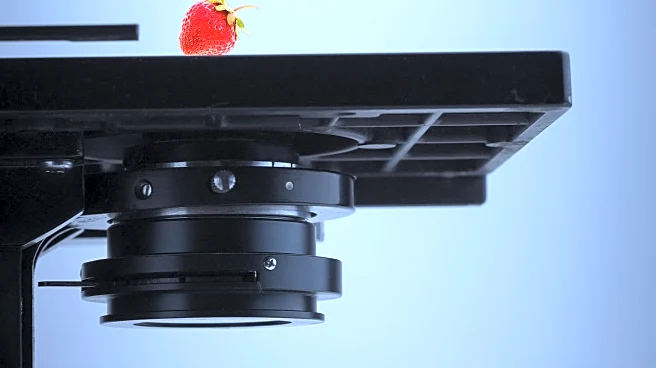What is the story about?
What's Happening?
Researchers at the University of Pittsburgh have discovered a method to enhance the cancer-fighting capabilities of T cells by preventing telomere damage. The study, published in the journal Immunity, reveals that the harsh conditions within tumor environments, such as limited oxygen and high acidity, lead to mitochondrial stress and the release of reactive oxygen species (ROS). These ROS molecules damage telomeres, causing T cells to become dysfunctional. The research team, led by Dayana Rivadeneira and Greg Delgoffe, found that by using a targeted antioxidant to protect telomeres, they could restore T cell function. This approach was tested in mice with melanoma, where the modified T cells resulted in better survival rates and smaller tumors compared to regular T cells.
Why It's Important?
This breakthrough has significant implications for cancer treatment, particularly in enhancing the effectiveness of immunotherapies. By preventing telomere damage, the antioxidant therapy could improve the longevity and efficacy of T cells used in treatments like CAR-T therapy. This method could potentially be integrated into existing CAR-T protocols, offering a way to make T cells more resilient to oxidative damage. The research opens new avenues for developing therapies that could improve patient outcomes, especially for those with aggressive cancers. The study also highlights the intricate relationship between mitochondrial function and telomere health, providing a deeper understanding of T cell exhaustion in cancer.
What's Next?
The research team is now working on adapting this antioxidant approach for human T cells, with the aim of testing it in clinical trials. Additionally, Rivadeneira plans to explore how telomere health affects the immune system and cancer outcomes more broadly. This includes investigating the impact of chemotherapy on T cell function and its potential influence on patient responses to immunotherapy. The findings could lead to new strategies for enhancing immune responses in cancer patients, potentially transforming the landscape of cancer treatment.
















